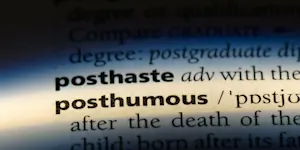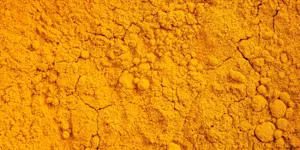What Makes This Word Tick
"Vapid" is like the flat soda at a picnic—missing that zing you were expecting. It's used to describe things that lack flavor, spirit, or interest. Whether it’s a dull conversation or a tasteless cup of tea, anything that makes you yearn for a little more oomph can be deemed vapid. It's a great word for when life seems a little lackluster.
If Vapid Were a Person…
If vapid were strolling down the street, you'd see someone whose expression might suggest they’re eternally waiting for a bus that’s late. Their clothes might be neutral colors, their gait unenthusiastic. But don’t be too hard on ol' Vapid—maybe they’re just a deep thinker conserving energy for a more stimulating moment.
How This Word Has Changed Over Time
Originally, “vapid” started off in the 17th century describing drinks that had lost their fizz—wine and beer just weren’t cutting it when they go flat. Over time, the meaning expanded to describe more than just beverages, capturing anything in life that left you feeling a bit, well, uninspired.
Old Sayings and Proverbs That Use Vapid
While you won’t find “vapid” in any age-old proverbs, it certainly embodies the wisdom found in expressions like “All froth and no substance.” Whether discussing a lackluster book or a tedious conversation, it reflects the time-tested frustration of style over substance.
Surprising Facts About Vapid
Believe it or not, “vapid” is considered a bit of a literary darling. If you stumbled upon it in a novel, you might feel a twinge of delight at seeing such a precise but underused word. It's rarely off the tongue, so it’s special when it makes an appearance, charming readers who delight in the richness of language.
Out and About With This Word
If you hear someone drop “vapid” in conversation, you might be in the company of a wordsmith or a well-read friend. It’s not the kind of word popping up in everyday small talk, often saved for moments when describing something truly bland or lacking imagination.
Pop Culture Moments Where Vapid Was Used
In the glittering world of pop culture, “vapid” loves to rear its head in savvy film reviews, critiquing that blockbuster that delivered more spectacle than sense. Or perhaps it featured in a sharply worded article or internet meme dissecting banal celebrity interviews or reality TV moments.
The Word in Literature
In novels where words are carefully selected, “vapid” might appear describing insipid social events or character interactions devoid of passion. Authors like Jane Austen could've used it to subtly critique a dinner party that was sure to be forgotten by morning.
Moments in History with Vapid
Imagine the early 20th century flappers, known for their vibrant lifestyles and dismissive attitudes towards anything dreary. They might have raised a glass at a dull gathering and whispered to each other how "vapid" the affair was before bouncing off to a jazz club.
This Word Around the World
Around the globe, the essence of “vapid” may be universally understood even when the word itself isn’t used. In French, the similar “insipide” can describe something tasteless or lacking character. In various cultures, synonymous terms could discuss stale bread, flat beer, or tepid enthusiasm.
Where Does It Come From?
The roots of “vapid” reach back to the Latin “vapidus,” which hints at something flat or lacking in force. This etymology highlights its earliest use in referring to beverages that didn’t quite tingle the taste buds as they should.
How People Misuse This Word
Occasionally, people might confuse “vapid” with “rapid,” thinking the former might mean speedy rather than unsatisfying. Or they might misinterpret it as having something to do with vapors or evaporation. Clarity is key, as its essence lies in dullness, not speed.
Words It’s Often Confused With
Rapid: Unlike “vapid,” which denotes dullness, “rapid” is all about speed and quickness.
Insipid: Both suggest lack of taste, but while “vapid” can apply to anything lifeless, “insipid” often refers to flavors.
Tepid: Slightly warm and lacking in enthusiasm, but not quite the same as vapid’s complete lack of interest.
Additional Synonyms and Antonyms
Synonyms for “vapid” include “dull,” “insipid,” “flat,” and “lifeless.” On the flip side, antonyms like “dynamic,” “exciting,” “stimulating,” and “vibrant” paint a picture of the energy that “vapid” lacks.
Want to Try It Out in a Sentence?
After attending a particularly uninspiring lecture, you might say to a friend, “That talk was so vapid, I could have sworn I heard the paint drying on the walls.”
















